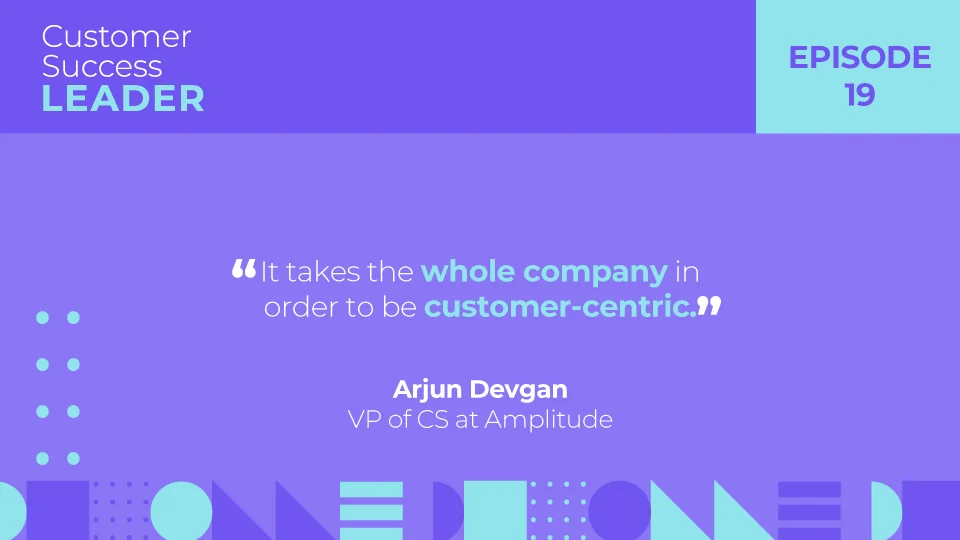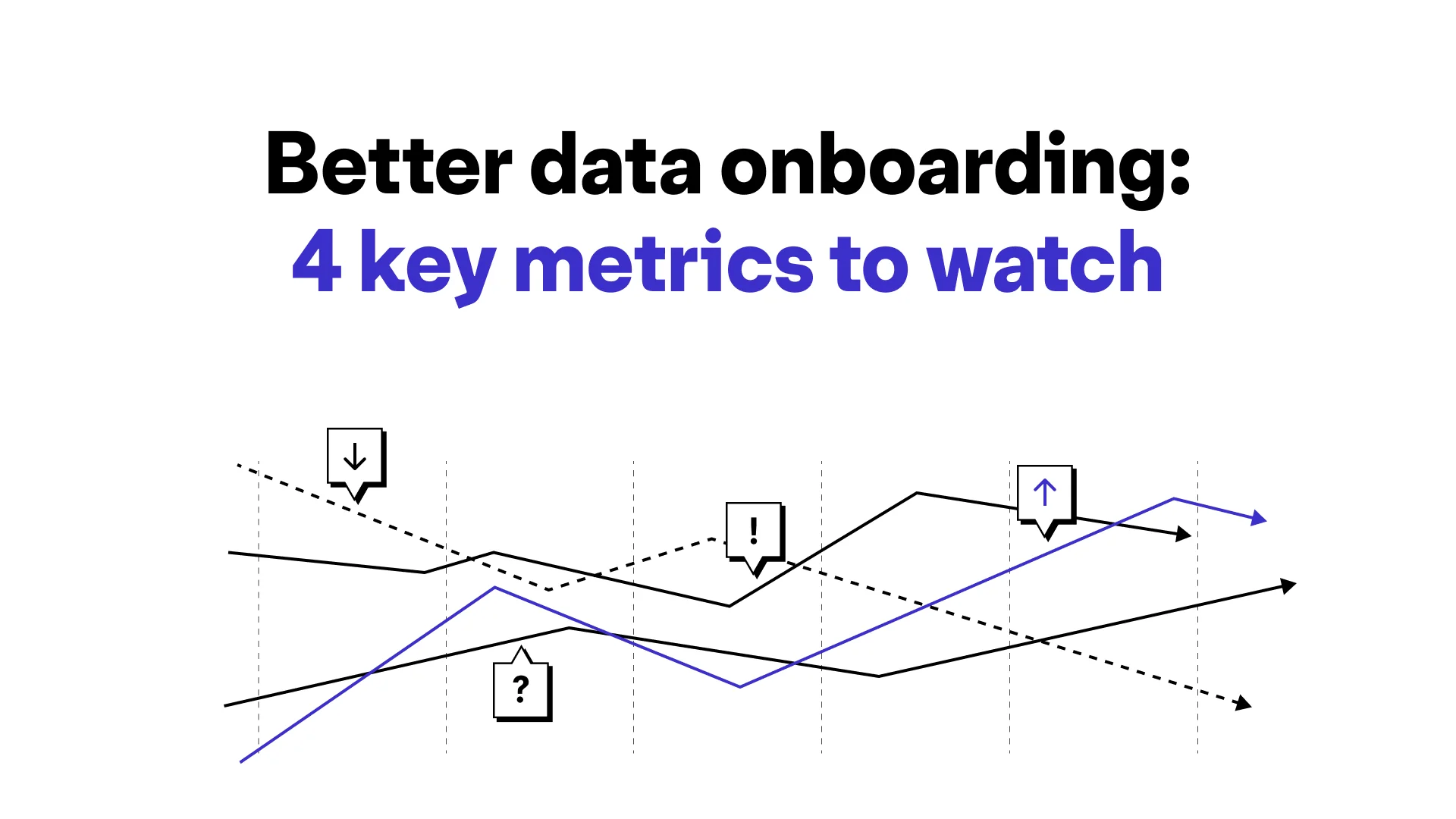How the Best CEOs Drive Customer-Centricity

Eric Crane
Co-Founder & COO
Share to

Who owns the customer experience? Most would say the CS team. But, in order to be truly customer-centric, it should be the entire company — starting with the CEO.
In this episode of Customer Success Leader, Eric sits down with Arjun Devgan, the VP of CS at Amplitude who explains how customer success is a service function with a sales outcome and how he’s brought those two disciplines that are equally important together into one.
Naturally, Arjun’s passion for people and problem solving led him to customer success and eventually got him to where he is now. He lets us in on his journey and what he’s learned along the way.
Proving your value to the customer year after year
Breaking CS into success, services, and support
Why the CEO needs to empower the organization to be customer-centric
The importance of having a top-level metric
Prove Your Value
In customer success, you’re continuously aiming to generate value. And in software, you have to reprove your value every single year.
It can be easy to get disrupted.
"Disruption happens fairly quickly these days... You can get disrupted providing a point solution product no matter how great your product is." — Arjun Devgan
To earn the customers business every single year you have to continue to:
Reprove value
Document value
Get acknowledgement of value (and do so in a cost-effective way.)
It Starts at the Top
As a CS leader, you want to provide customers a service that is on a critical path to making them successful. As you scale, it's important to separate that path out while understanding the importance of cross functional relationships within a company.
One of Amplitude’s clear visions for 2021 is making a clear distinction between where all functions of the company intersect.
No one department should be alienated in the process of customer success. The CSD might take the lead on the strategy, but each department has an important role to play.
Arjun says the best CEOs empower the head of customer success to partner with all of the other departments within the company in order to create a unified experience for the customer.
It’s not easy to do, but it’s vital for the company as a whole.
The CEO should be very customer centric and empower every department to think about the company’s customers first.
Arjun’s Best CS Advice
Always have a charter to make sure your CEO and CFO are in alignment when buying into the company’s top level metrics.
The top-level metric will vary year by year and from company to company, but knowing the top-level metric and the direct benefit customer success is having will provide a clear-cut path, instead of your CS team being bogged down with trying to reach seven different goals at once.
This will help your CS team avoid the identity crisis of I'm responsible for everything but accountable for nothing. Which can make the job more difficult than necessary.
Pick a top-level metric to hyper-focus on, measure it, and improve it.
"Ultimately, every single point in the customer experience and the outcomes you deliver to that customer ends up defining how long they stay with you." — Arjun Devgan
Who owns the customer experience? Most would say the Customer Success team. But, in order to be truly customer-centric, it should be the entire company starting with the CEO.
In this episode of Customer Success Leader, we discuss:
How to prove your value to the customer year after year
Why Arjun breaks CS into success, services, and support
Why the CEO needs to empower the organization to be customer-centric
The importance of having a top-level metric
powered by Sounder
Apple Podcasts or iTunes | Google Podcasts | Stitcher | Spotify
Subscribe, listen, rate, and review the Customer Success Leader podcast:
For more info, check out customersuccessleader.com or send a message to hello@flatfile.io.

Want to learn more about the Flatfile Data Exchange Platform?


